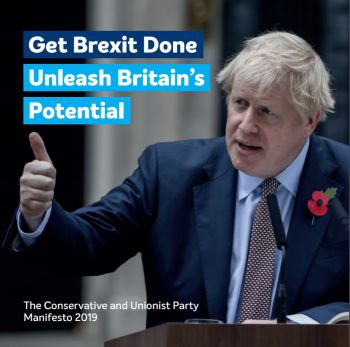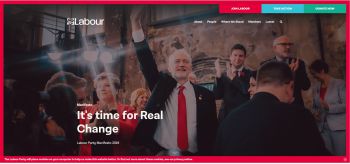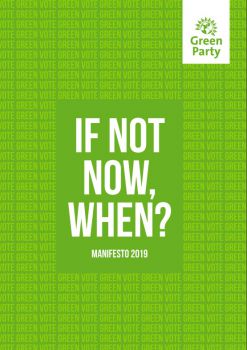


The political party manifestos in this General Election are incoherent and vague on trade and contain a number of unachievable targets, according to expert analysis from the UK Trade Policy Observatory.
A Conservative manifesto pledge to end the transition period by the end of next year is "extremely unlikely" while another ambition to have signed Free Trade Agreements covering 80% of UK trade within three years is "for the birds", says UKTPO Fellow and University of Sussex economics professor Michael Gasiorek.
Meanwhile Labour's pledge to renegotiate a new Brexit Deal within three months and hold a second referendum within six would also be very difficult to achieve, according to UKTPO Research Officer Julia Magntorn Garrett.
And the Green Party's ambitions for major subsidies to incentivise industry to cut emissions and farming to take up more environmental practices are likely to fall foul of EU state aid rules, says UKTPO deputy director Professor Jim Rollo.
On the manifesto pledges by the Conservatives, Prof Gasiorek said: "The feasibility of signing a free trade agreement with the EU by the end of 2020 is extremely unlikely and is dependent on to what extent the UK is willing to accept the EU position on matters such as fisheries and level playing field provisions.
"The feasibility of signing FTAs with third countries covering 80% of trade within three years is for the birds. If we manage to sign a deal with the EU, that still leaves about 30% of trade to be covered so that means another 12 countries or more and that is almost certainly not going to happen."
Analysing Labour's trade pledges, Magntorn Garrett said the party's plans to renegotiate the Withdrawal Agreement within three months and then putting it to the country in a second referendum in six months was "ambitious" - especially if complicated by coalition negotiations with the SNP.
She added that the party's pledges on single market alignment and trade deal negotiations were vague.
She said: "The Labour manifesto says there will be joint UK EU trade deals but it's not clear what that would mean. It might be possible for the UK and EU to agree on a consultation arrangement where the UK gets some input into EU trade negotiations but it's very unlikely the UK would get a seat at the table or any veto, so the proposed deal would certainly limit the UK's policy space in what it could negotiate in its own FTAs."
On the Green Party's policies, Prof Rollo said: "The Green New Deal includes subsidies to help firms to decarbonise and for farming to shift to a more environmentally fair and functioning agricultural on policy. The key question to this is how it will all sit with EU rules on state aid and competition, it's very hard to see how this will work in tandem with EU policy."
On the Brexit Party contract with the people, UKTPO Research Officer Nicolo Tamberi said the party's objective to sign a Free Trade Agreement with the EU by summer 2020 was even more ambitious than the Conservative Party and therefore even more unlikely if the agreement were to have any significant content.
He added: "The Northern Ireland border has been a significant problem for the governments of both Theresa May and Boris Johnson but to the Brexit Party this is not a problem. They argue that Northern Ireland and the Republic already have different currencies and different tax systems and have been fine until now so they don't see why exit from the EU will require a hard border. If it's the EU want to keep the Good Friday Agreement intact, the Brexit Party argues, it is up to the EU to offer the concessions and exceptions for Northern Ireland. This is extremely worrying."
UKTPO director Prof L Alan Winters described the Liberal Democrats' acceptance of the status quo approach to trade policy making as a "missed trick".
He said: "If we are to stay in the EU it would be heathy for us and healthy for the union to have a broader discussion on trade beyond just the sectorial interests of the banks looking after banking trade and the textile producers looking after the textile industry. In my view it is a missed trick from the Liberal Democrats not to challenge the current lack of consultation and informed debate about trade policy.






